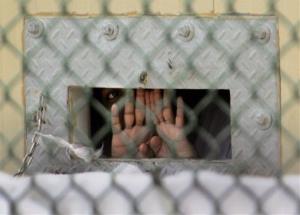By Terance Walsh
Impunity Watch Reporter, Europe
BUDAPEST, Hungary — The European Union has assumed a hard line stance against Hungary’s controversial political reforms. The EU accuses the Hungarian government of violating democratic rights with its new constitution. Hungarian authorities dismissed the accusations and await the EU’s explanation for why it so staunchly opposes the new constitution.

Hungary’s new constitution, which was adopted at the end of 2011, contains provisions that limit the independence of the central bank, the judiciary, and the media. Critics say the new laws are a sign of emerging authoritarianism that block the road back to democracy.
The European Commission, the EU’s executive arm, released a statement calling for reform in the Hungarian government. “The commission recalls that a legally stable environment, based on the rule of law, including respect for media freedom, democratic principles and fundamental rights, is also the best guarantee for citizens’ trust and confidence of partners and investors. This is particularly vital in times of economic crisis. The swiftest way to lay to rest the concerns mentioned would of course be action by the Hungarian authorities themselves.”
For example, one provision of the new constitution gives the Prime Minister the power to appoint vice presidents of the Hungarian central bank. Previously the president of the bank himself began the appointment process by nominating a candidate for the position. This power is no more, thus depriving the central bank of its independence and giving greater power to the government.
Hungary also now has mandatory retirement rules that the government can use to oust judges and prosecutors. This, critics say, eviscerates the independence of the judiciary.
The EU stands opposed to the new constitution and threatens legal action if the constitution is not reformed. EU officials allege that there are a “number of the new provisions may violate EU law.” If found in violation of EU law, the EU “reserves the right to take any steps that it deems appropriate, namely the possibility of launching infringement procedures.”
Hungary has dismissed the accusations. The Prime Minister Viktor Orban objected to the European Commissions admonishment of Hungary, saying the criticism of the new constitution was not “convincing.” He said, “Our general approach is that we are open and flexible, we are ready to negotiate all the points but what we need is not political opinion but arguments…. And when the arguments on behalf of the EU are convincing that it’s better to accept and follow that line, there is no reason not to do that.”
At a time when the Eurozone is struggling to stave off economic crisis, Hungary will likely have to bow to EU demands. Hungary cannot afford to alienate the EU at this time.
Zoltan Arokszallasi, an economist for Erste Bank Hungary in Budapest, opines that Hungary will have to take steps to be amenable with the EU’s requests. “It is likely the government will take adequate steps,” Mr. Arokszallasi said. “From a financial point of view there is no alternative.”
For more information please see:
The Star — EU Ready To Hit Hungary — 13 January 2012
CBS Money Watch — Hungary Awaits EU, IMF Argument Against New Laws — 12 January 2012
New York Times — European Union Gives Hungary An Ultimatum — 12 January 2012
Reuters — Hungary PM: Waiting For EU’s Arguments On Disputed Laws — 12 January 2012
Wall Street Journal — EU Hardens Line In Hungary Fight — 12 January 2012
Washington Post — Summary Box: Hungary’s Prime Minister Dismisses EU’s Opposition To Country’s New Constitution — 12 January 2012
New York Times — The Unconstitutional Constitution — 2 January 2012

